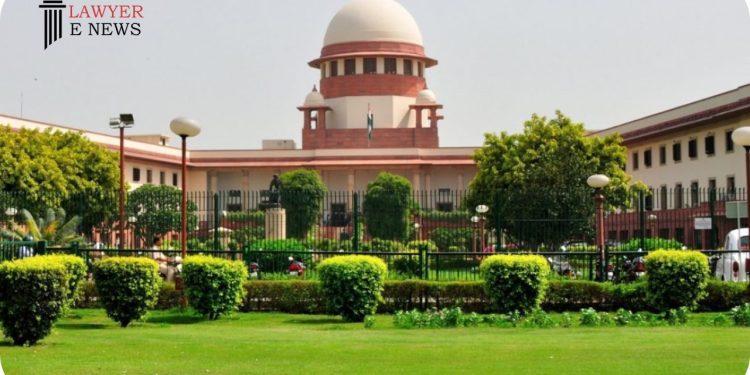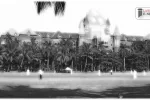WITNESS IS RELATIVE OF VICTIM – NO GROUND TO EXCLUDE – SC

Supreme Court observed in the recent judgement (PARSHAD PARDHAN & OTH. VS. STATE D.D. 24 JAN 2023) that the witnesses were related to the deceased does not exclude their testimony. The witness testimony is supported by other witnesses and there is no evidence that the witnesses would have reason to depose falsely.
Facts – The case involves the prosecution of two accused persons (A1 and A2) for the murder of Vrindawan, who was the cousin of the accused. The incident took place on 28.02.2012 when the deceased was getting his land levelled. The prosecution alleges that the accused reached the place and attacked the deceased, causing him serious head injuries. Vrindawan later died in the hospital on 22.03.2012 due to the head injuries. The police registered a case based on a FIR lodged by the deceased’s daughter, alleging that A1 was armed with an axe and attacked the deceased on the head and A2 was armed with an axe and attacked the deceased on the legs. The third accused, Soudagar Pradhan, was also implicated but was acquitted by the High Court. After the trial, all three accused were charged for murder and other offenses, and the present appellants (A1 and A2) were found guilty and sentenced to life imprisonment and six months rigorous imprisonment. The appeal by the present appellants was partly allowed by the High Court.
Argument of Appellant – The appellants contended that the prosecution evidence and arguing that the three eyewitnesses are not credible because they are related to the deceased and their statements are contradictory and implausible. They contend that the incident was a sudden event that occurred when the deceased was leveling the disputed land and the appellants, who lived in adjacent houses, went out and allegedly assaulted the deceased. They argue that they are only liable for their individual acts and not for a common intention. Alternatively, they argue that the incident was sudden and without premeditation, and they had no intention to cause death but only to deter Vrindawan from working on the disputed land, and therefore, the conviction should not go beyond Section 304 Part-II IPC.
The appellants also argue that the cause of Vrindawan’s death was not the injury caused by the attack but was a result of complications from the surgery and cardio-respiratory failure. They assert that the head injury had healed and that the prosecution failed to prove that the injury was sufficient to cause death. They argue that the finding of the court that they were guilty of Section 302 IPC was in error of law because the cause of death was not immediate or a direct result of the attack.
Supreme court observations and Decision – The nature of the attack by the appellants and the quality of eyewitness testimony of prosecution witnesses are credible and reliable. The fact that the witnesses were related to the deceased does not exclude their testimony. The witness testimony is supported by other witnesses and there is no evidence that the witnesses would have reason to depose falsely.
No “sudden quarrel” between deceased and the appellants to fall under Exception 4 of Section 300. Eyewitnesses testified that the appellants abused the deceased in an unprovoked manner and attacked him with axes, which does not constitute a “sudden quarrel.” The fact that the appellants were armed shows premeditation and the attack on the head shows undue advantage.
Exception 1 to Section 300 cannot be attracted as no evidence of loss of self-control due to sudden and grave provocation has been shown. No evidence or contention of a long-standing preexisting dispute is present in the case.
Pre-existing disputes between the accused and the deceased exist but there is no evidence to show that these disputes were aggravated or that the deceased said something that triggered the accused’s anger. The accused failed to bring any relevant evidence or material on record.
The fact that the deceased died 20 days after the attack does not automatically reduce the accused’s liability from murder to culpable homicide. The nature of injury and its causality to the death are more important factors.
There is no fixed formula to determine the nature of the offense based on the time of death after the injury. Every case is unique and the relevant factor is the nature of the injury and whether it is sufficient to cause death in the ordinary course of nature.
Based on the above discussion, the court upholds the conviction and sentence of the accused. The appeal is dismissed without costs.
PRASAD PRADHAN & ANR. …
VS
THE STATE OF CHHATTISGARH






